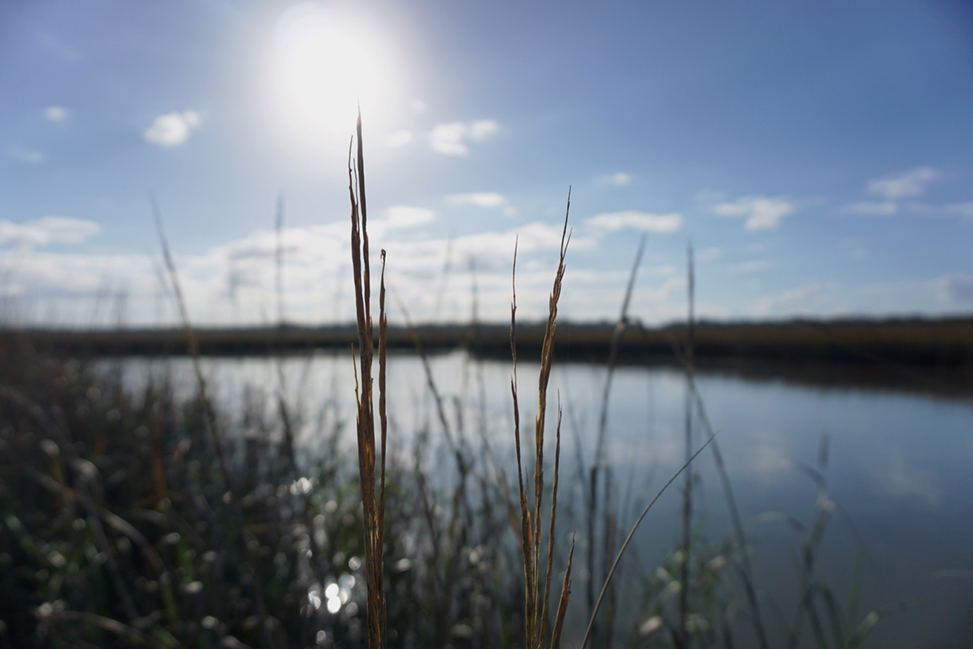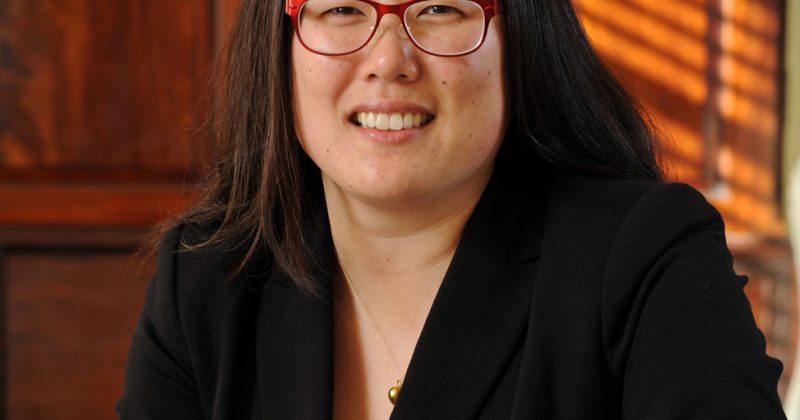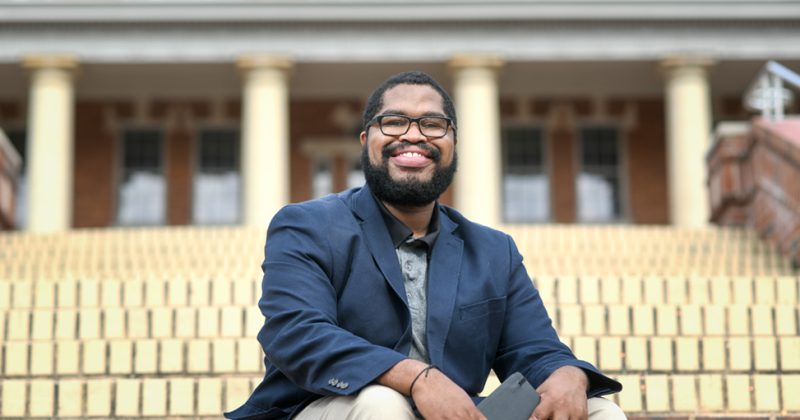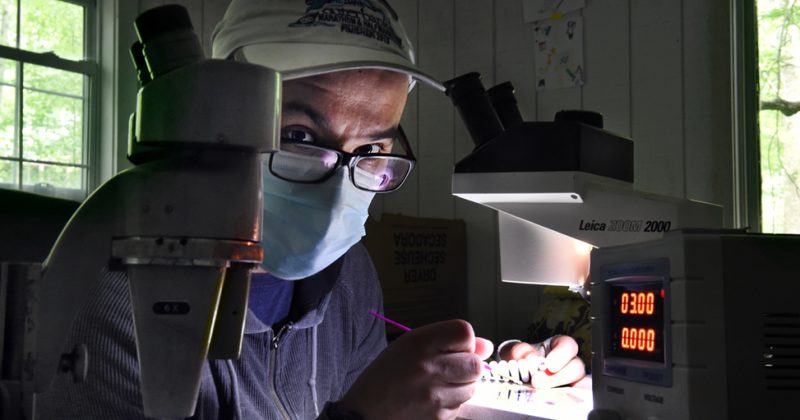
The landscapes in graduate student Anna Hamilton’s hometown of St. Augustine in northern Florida are changing in a very visceral way. She shared an example from a fishing trip with her dad on the Matanzas River this past summer.
“You usually walk out onto the mudflats, surrounded by spiky estuarine flora and fauna, but in the last 10 to 15 years, we’ve seen an influx of mangroves, which are a southern Florida phenomenon,” she said. “With all these physical transformations in the landscape, we couldn’t find our way to our usual fishing spot that we know so well. Things are changing quickly.”
Hamilton, a Ph.D. student in American studies, is an oral historian whose work centers on the ideas of home and place and loss amid climate change. Her multimedia project, Matanzas Voices, documents the lives of the commercial fishermen, photojournalists, restaurant owners, scientists, park rangers and others who care about the 23-mile-long estuary system that runs through St. Augustine. The Matanzas is part of the Intracoastal Waterway.
Longtime oysterman Hugh Mercer told Hamilton in an interview:
“What we’re really saying here: We’ve got a little treasure on our hands with this Matanzas. And we’ve got to be awful careful with it or we’re going to lose it.”
Hamilton had completed an interview with a longtime restaurant owner when Hurricane Matthew wreaked havoc in 2016 and flooded the restaurant, a staple in St. Johns County. The family had to tear it down.
“There’s a sense of urgency in getting those stories down for places that are vulnerable,” she said. “We don’t know if things will be there tomorrow.”
Hamilton received a Southern Futures Award to support her work in the region. Founded in September 1565 by Pedro Menéndez de Avilés of Spain, St. Augustine bills itself as the nation’s oldest city. With development, tourism and the impact of hurricanes and climate change, it’s become a coastal town whose character is changing right before her eyes, she said. Because of warmer temperatures, her dad is now able to grow papayas, which used to be a staple only in the southern part of the state.
“With sea level rise, it’s possible I may not be able to move back to my hometown in my lifetime,” she said. “Through my research, I’ll be diving into this idea of anticipatory mourning; in other words, we have been living in this place for generations yet we know we won’t have it forever. So we simultaneously experience love and appreciation and trauma. How can we use oral history as a place for people to grieve?”
Although COVID-19 put a halt to her summer in-person fieldwork, Hamilton was able to continue to update the project website as well as do some work with the Florida Folklife Program, which conducted a survey centered on people’s connections to water and waterways. This fall, she is serving as a field scholar with the Southern Oral History Program in the Center for the Study of the American South.
Hamilton said she has always been interested in the intersection of science and the humanities. She values being able to tap into a Southern Futures community of scholars that includes musicologists, archaeologists, anthropologists, public health scholars and other experts.
“I’m very interested in public-facing, community-building work and how storytelling in general can impact communities, often for the good,” she said. “I see the value of applied work, being able to communicate across boundaries, ask new questions and answer them in innovative ways.”
Learn more about Southern Futures.
By Kim Weaver Spurr ’88
Read more stories about Southern Futures:
Southern Futures: Diverse voices for a changing region
Southern Futures: Exploring intersections of class and race in Green Valley
Southern Futures: Cultural activism and the fate of Johns Island
Southern Futures: Chief Hope Officer
Southern Futures: Voices of resilience and recovery in Robeson County
Poet Tyree Daye was featured in a Southern Futures podcast.
Published in the Fall 2020 issue | Features




